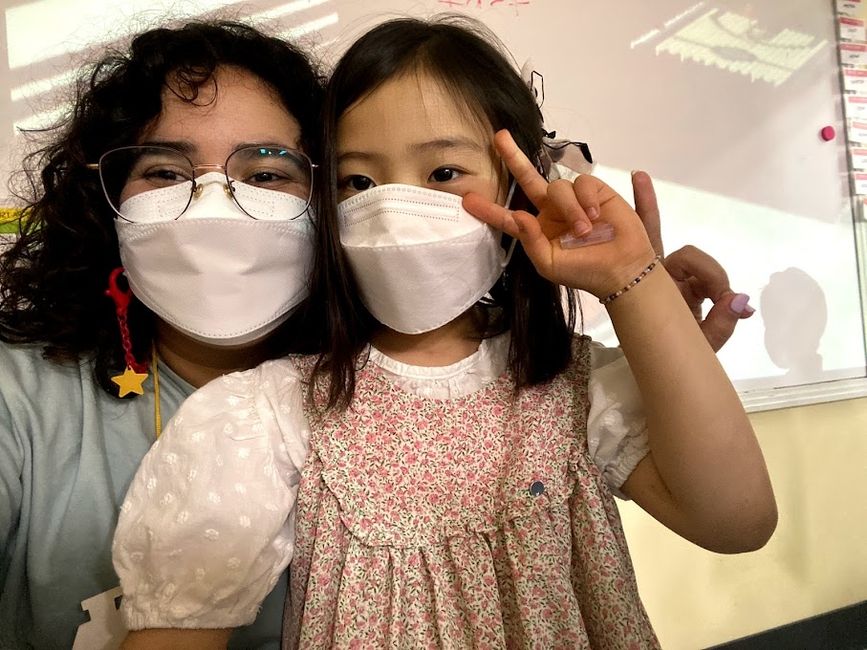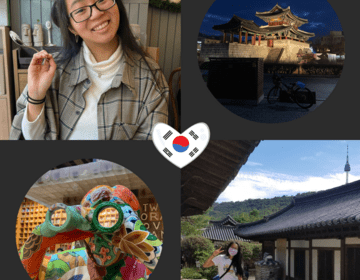Navigating Korean Culture in the Education System: A Guide for English Teachers
As an English teacher in South Korea, understanding Korean culture is important for creating a respectful and open learning environment. I have been lucky enough to have lived in South Korea since 2021, so trust me when I say navigating Korean culture is super important. There used to be a lot of small things that would bother me or have me trying to question Korean society because I simply didn’t understand the cultural aspect of certain things. Knowing how to effectively navigate Korean culture in the education system will help mold your experience as an English teacher in South Korea and help you foster a better relationship with your students, coworkers, and friends.
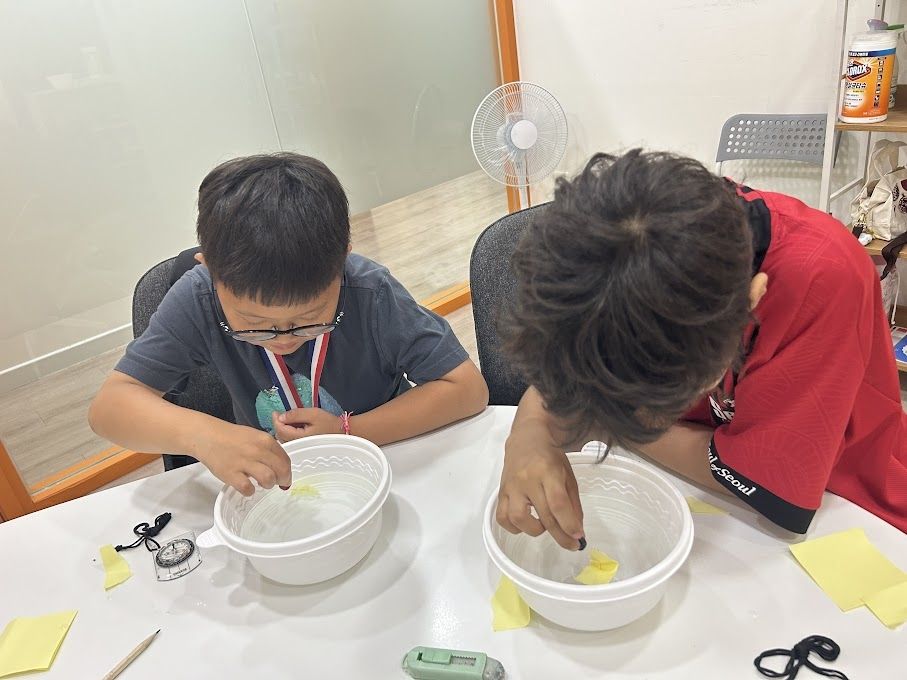
K-Culture 101
Korean culture is deeply influenced by Confucian values, which emphasize respect for hierarchy, family, and social harmony. In education, this basically means a strong emphasis on respect for authority and elders. Teachers are highly respected and viewed as authority figures, which can tend to help shape classroom dynamics. A lot of the time, Korean children are taught to not really question authority figures and follow whatever the person in the higher societal position says or does.
Korean society also tends to be collectivist, with Koreans prioritizing the needs of the greater society over individual desires. This definitely extends into the classroom where students often ask to work together and may prioritize group/team achievements. English teachers should be aware that students might be more comfortable in group activities and may seek to maintain harmony rather than stand out individually.
This can be both a good thing and a bad thing when you are teaching English abroad. One good thing is that having this embedded hierarchy means that managing a classroom is a lot easier as students are more willing to respect their teachers and even other students that are older than them by one or two years in the classroom. This also means that they are willing to follow your instructions and examples during the lesson.
On the other hand, this hierarchical system tends to lessen the creative abilities of the student. It can be so challenging to have the students come up with unique and individual pieces of writing. The concept of “using your imagination” is often lost on the students and they tend to ask “Teacher, can I just follow you?” which translates to them asking if they can copy my exact example on the board word for word.
When I first began my teaching journey in Korea, this used to frustrate me so much because I couldn’t understand how children had a lack of imagination. However, the longer I’ve lived in Korea and the deeper into Korean culture I got, I realized that it isn’t a lack of imagination but rather an understanding that an elder is wiser and more experienced than you therefore they are always correct and you should mirror exactly what they do or say.
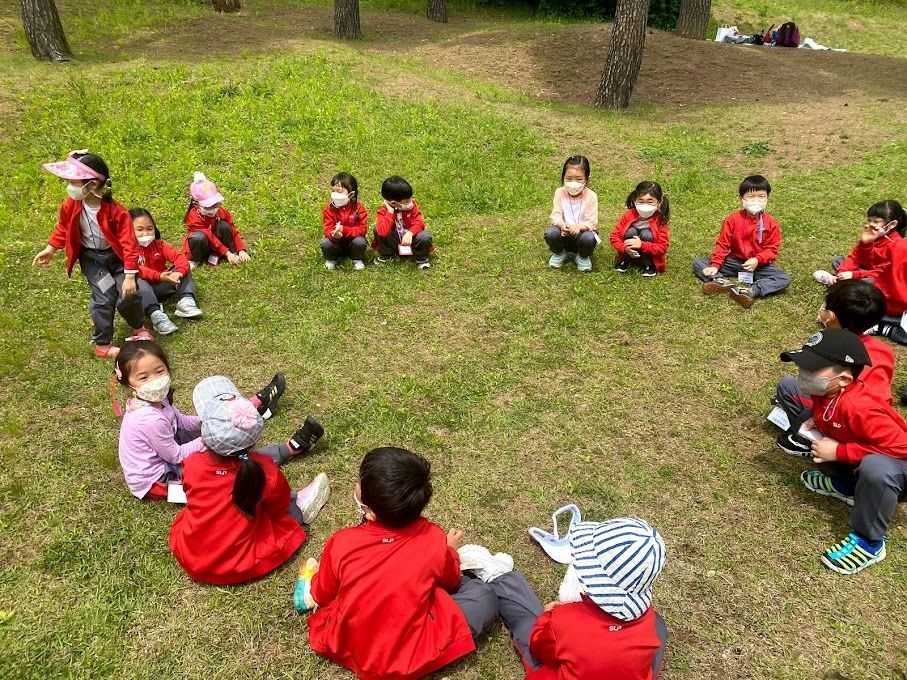
Korean Culture in the Classroom
Korean students are generally well-behaved and respectful in the classroom. As I stated before, they are accustomed to a structured learning environment where discipline and respect is important. As an English teacher, it is super important to establish clear expectations and consistent rules. A lot of the time, Korean students might think the English teacher is a bit more lenient, so they are a bit more inclined to test the limits of the classroom and teacher.
For me, I know that at the beginning of the year the students are going to be off the walls trying to test me and see what I will put up with and how much they can get away with. I usually tend to take the first class as a Get To Know The Teacher style of lesson where students can get to know a bit about me and get to ask me some questions about my life in Korea and about me as a teacher. I try to make fun PowerPoint Presentations about myself with funny pictures and GIFs in order to kind of relate to the students a bit. I also use the PPTs to introduce the students to my classroom rules, my expectations as their teacher, and the consequences of their actions if said rules are broken.
With that being said, the first month can be BRUTAL. You are learning the ropes and the kids are getting into their routine. Trust me, I probably cried like everyday after the day was over because it was a bit overwhelming but it definitely gets better. Once the routine is established and boundaries/rules are set, the students often have the sense to follow and maintain the classroom harmony. It’s also important to balance out being strict and having fun to foster a positive learning environment. I tend to tell my students that if all my rules are followed, they can get a prize out of the treasure box or they will get a piece of candy after the lesson.
Korean education often relies on memorization and a rigorous academic schedule. Because of this, lessons might tend to feel a bit boring. English teachers can introduce interactive lessons and activities such as role-plays, discussions, and multimedia presentations that engage students and make language learning more dynamic. It’s important to adapt these methods to align with students' existing learning styles while gently encouraging them to step out of their comfort zones.
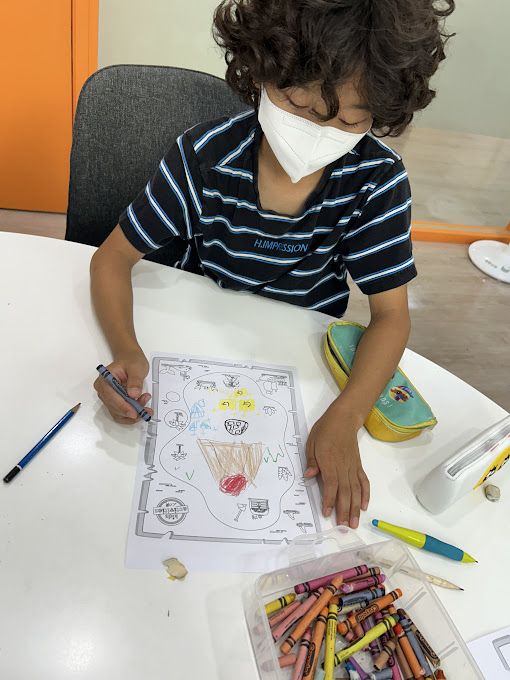
One of my favorite resources to use in the classroom is the game PowerPoints. These are PowerPoint presentations that have images and transitions to function like virtual games. I usually download them from Tay’s Teaching Toolkit online and then edit them to fit my lesson. While I mainly use the PowerPoint games for reviewing material before a test, some of my coworkers use the games to go over speaking concepts or reading comprehension questions.
Korean students may also be a bit reserved and hesitant to speak up in class, especially when they aren’t confident of their English abilities. Creating a supportive environment where students feel comfortable making mistakes is crucial. Encouraging participation through positive reinforcement and small group activities can help students build confidence.
In my classroom, our star reward system isn’t just for good behavior. I also award stars to students that are participating in class and maintaining a positive attitude during the class time. For some of these students, especially the younger ones, it is their first time seeing a foreign person and it’s their first time hearing something else besides Korean being spoken by an adult or a teacher. This can often trigger tears and sad feelings towards coming to school or learning English but trying to reward them for trying tends to boost their confidence. Over the years, I have found that constant praise or a simple “Good Job” sticker or stamp on their paper makes them feel like they won the lottery.
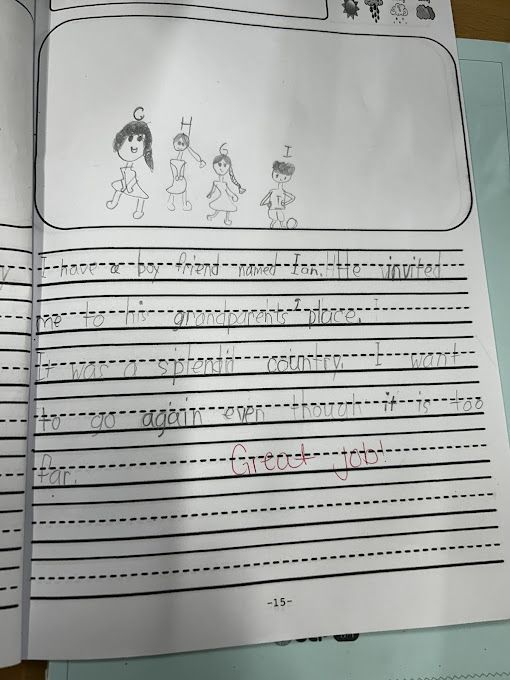
Building Relationships with Students and Coworker
Building relationships with your students and coworkers can be the most rewarding part about teaching English in South Korea. Building strong bonds with students means showing interest and respect in their culture and acknowledging their efforts to learn about your culture and the English language. Simple gestures such as learning a few basic Korean phrases, understanding Korean holidays, or showing interest in Korean traditions can go a long way in building rapport. Students should feel that they can approach their teacher with questions or concerns. Being approachable and maintaining an open-door policy can help in establishing trust between your and your students. Regularly checking in with students about their progress or even just their feelings and providing constructive feedback helps in creating a supportive learning environment. I usually tend to ask my students how they are doing and engage in a bit of small talk before we jump into our lesson.
In the Korean education system, there are typically multiple roles within a school, including homeroom teachers, subject teachers, and administrators. Respect for hierarchy is not only important with students but also with your coworkers. Understanding the roles and responsibilities of your Korean coworkers can help in creating more harmony in your school environment. It’s important to be mindful of formalities and show respect for senior coworkers and your bosses in order to foster a good working relationship. Giving a small bow to your principal or director as a greeting shows an appreciation for Korean culture and a respect for hierarchy.
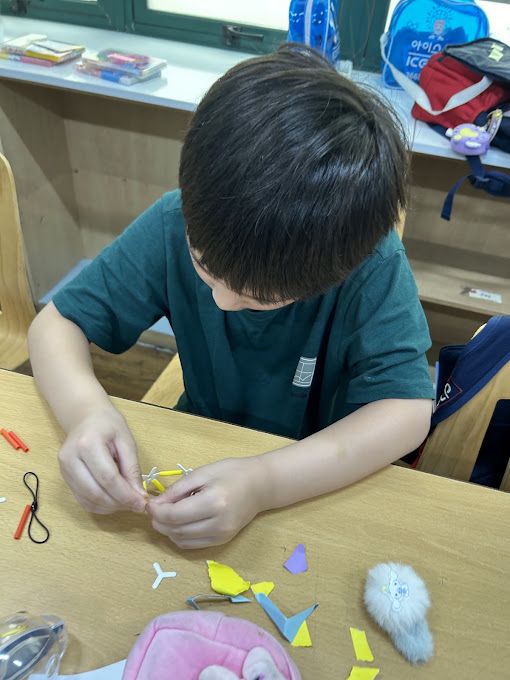
Educational Expectations
Korean schools often have a rigorous curriculum with scheduled monthly tests and standardized test days built into the schedule. Despite this, it is okay for teachers to tweak their lessons and find extra materials, videos, and activities that fit into the curriculum. It’s also important to note that every teacher has a different teaching style or methods which means that the same lesson can be presented differently depending on the teacher who is giving the lesson.
It is also important to note that, as I stated before, for some of these students, it is the first time they are ever hearing a language other than Korean being spoken in the classroom. Their speaking probably won’t make much sense grammatically and their spelling might be super bad, but it is important to know how to tailor your lesson to fit the needs of the students in your class.
Parents in Korea also place a high value on education and may have specific expectations regarding their child’s academic performance. Additionally, it has been increasingly more common for parents to become involved in how the curriculum is created or what things should be done in class or how activities should be done.
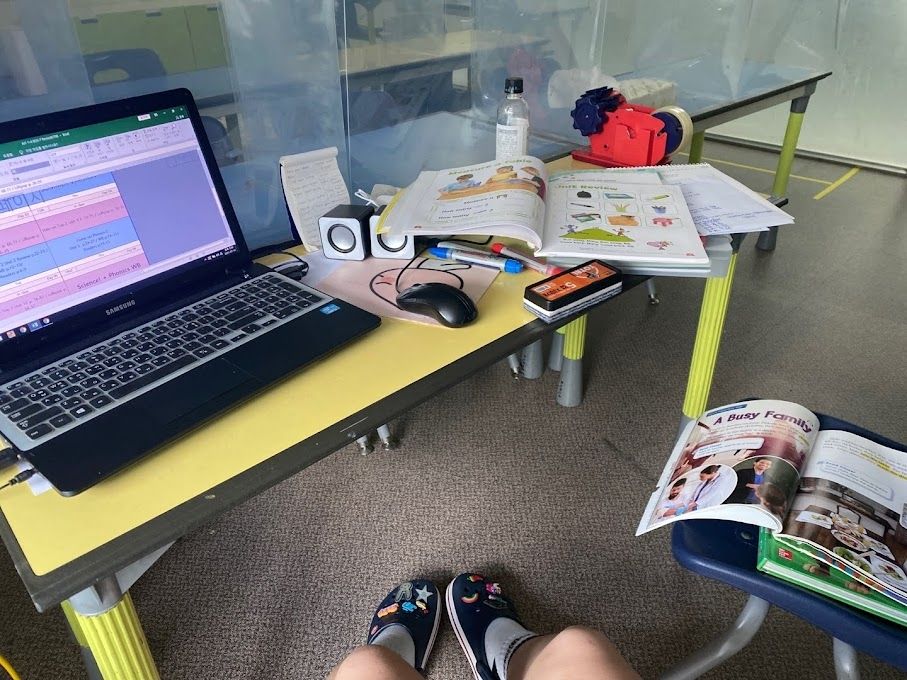
While this can seem a bit overwhelming, it’s important to keep healthy boundaries with your student’s parents while also keeping in mind that parents will complain and compare to other schools but it has nothing to do with you or your teaching abilities. The best way you can keep the parents up to date on their child is by constructing detailed progress reports and constantly communicating with your co-teacher. This is especially important if you decide to work at a private school, better known as a hagwon. However, it is also important to remember that while hagwons are marketed as schools, they operate like businesses and the directors and owners of the hagwon are trying to keep their business afloat. I have been very fortunate in my teaching career in Korea that none of my students’ parents have ever had any issues with me or my co-teachers. Most of the students I have taught came from homes where both parents were working and they didn’t have time to complain about minor details.
However, despite this, parents are also extremely grateful to their child’s teachers and hold us in high regard. Many parents will express gratitude towards you and your co-teacher by sending a small note with their child or having the child write a thank you card to you.
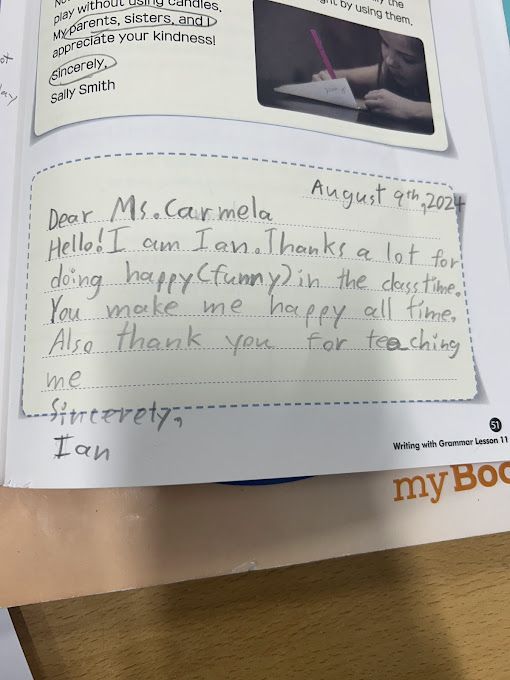
Cultural Sensitivity and Adaptation
One thing that some English teachers forget while living in South Korea is that they are guesting in a country. That means that you sort of have to abide by their cultural norms, values, and societal cues. While there are some things that might seem a bit strange or illogical to our western brains, it is important to remember that modern Korean society has been influenced and affected by Confucianism, Chinese, and Japanese influences. Therefore, doing things for the greater good, caring for others in your community, and having some of the elders in your neighborhood ask you 1000 questions will become your norm as well.
I will also say that certain topics that are regular conversation starters in the United States might seem taboo and make others uncomfortable in South Korea. Avoiding topics like Korean politics, historical conflicts, sexuality, and religion can help in maintaining the harmonious environment (a very Korean thing to do). You can save these kinds of conversation topics until after you have become very close with someone, but even then I would usually avoid it.
Additionally, participating in local festivals, traditions, and customs can enhance your experience in Korea and help you integrate to the community faster. This was the case for me when I was living in Suwon, as my coworkers and I made it our tradition to visit Gwanggyo Alleyway during October to take part in the Halloween themed festivities. Now that I am married, I get the chance to participate in family activities like Chuseok, Memorial Day, Parent’s Day, and Korean New Year.
Related Posts
How to Go to the Doctor in South Korea as an English Teacher: A Guide to Healthcare and Health Insurance
As an English teacher in South Korea, maintaining good health is essential while living abroad. Navigating the healthcare system can seem daunting and stressful at first, especially if you can’t... keep reading
CIEE CHINGU – A Partner Program for Teachers in Korea
Chingu ( 친구 ) is the Korean word for friend . CIEE Chingu is a partner program included in CIEE’s Teach in South Korea programs! Our goal is to connect... keep reading
TWICE with CIEE: Kayleigh in Korea (PART 1)
Kayleigh is a CIEE alum who participated in CIEE's Teach in South Korea program AND CIEE’s Teach in Spain Volunteer program! CLICK HERE to read her experience in Spain. WHY... keep reading
